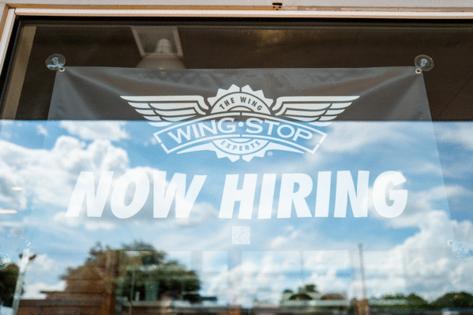Editorial: Artificial intelligence meets fried chicken at Wingstop
Published in Op Eds
At a moment when artificial intelligence is progressing at a rapid rate and the job market is tightening, one fast-food chain offers a glimpse into how everyday businesses are adopting AI to improve efficiency — and reduce their workforce.
By the end of this year, Wingstop expects its 2,000-plus stores across the U.S. to be using its new AI-powered “Smart Kitchen” technology.
AI is poised to take over sophisticated business functions, including the training of other AIs, so to speak. That has alarming implications for human occupations as diverse as coding and customer service, trading and sales.
Wingstop is hardly alone in charging ahead with leveraging AI in its daily operations. All of the biggest names in fast food are exploring AI solutions for their businesses. Yum! Brands, the corporation that owns Taco Bell, Pizza Hut and KFC, announced this spring that AI would take fast-food orders at 500 of their major chains.
All the fanfare about AI merits caution and skepticism. Goldman Sachs projects that by 2045, advances in generative AI and robotics could fully automate up to 50% of jobs.
Investors are banking on AI to eliminate millions of hours in inefficient busywork, and companies are making huge investments in the power-hogging data centers and advanced microchips that make AI go. But practical evidence of AI transforming everyday tasks is limited, which is where fried chicken comes in.
Wingstop hardly springs to mind when thinking of high-tech operations. It has a simple takeout menu prepared in a row of deep fryers, with no ovens or grills required. Still, the restaurant chain’s stock surged last month when it reported its Smart Kitchen rollout.
Today, in more than 1,000 of its restaurants, Wingstop’s new digital operating system streamlines ordering and evaluates scads of data to predict how much food will be needed and when. Everything from the weather forecast to the timing of sporting events and closing bells at local schools reportedly is being considered.
Wingstop restaurants can be refitted with the Smart Kitchen technology overnight, and it’s so simple to use that workers can figure it out in as little as a single shift, the company told Wall Street investors during a July 30 conference call. It takes about a month for a restaurant to fully acclimate to the system, and about four months for customers to come to terms with the “benefits” of more accurate orders, calmer environments and, above all, speedier service.
On a good day, unaided human workers at Wingstop typically require between 18 and 22 minutes to complete an order, the company reports. With Smart Kitchens, an order takes about 10 minutes to fulfill. That not only means less waiting time for customers in the store, but also that third-party delivery services are more likely to be able to get wings to a customer’s doorstep in 30 minutes or less.
Users of apps such as DoorDash or Uber Eats often screen for dining options that can be delivered within 30 minutes, so Wingstop was getting overlooked in favor of competing options with quicker service. With Smart Kitchens, faster service times make it possible to dramatically boost delivery, which in turn boosts profits. It’s a “game changer,” Chief Executive Officer Michael Skipworth told investors.
That’s AI in action at a very simple business, and AI promises to be even more transformative when things get complicated.
We’ve previously voiced concerns about AI-powered transactions maximizing profits through “personalized” prices for airline fares or groceries. AI-driven pricing applied to individuals is a potentially unfair practice that needs to be closely monitored.
The idea of AI taking over as therapists, screenwriters and, yes, journalists, sounds like bad news to us as well. This page is committed to human-authored content only, and to enforcing copyrights against AI training bots that raid newspaper archives, scooping up and regurgitating human labor (when they are not “hallucinating”).
On the other hand, we do recognize the potential for AI to unleash life-altering changes in industries such as health care and, maybe, the rapid provision of chicken wings.
We’ll see how it handles applying the Atomic Rub.
_____
©2025 Chicago Tribune. Visit chicagotribune.com. Distributed by Tribune Content Agency, LLC.
























































Comments